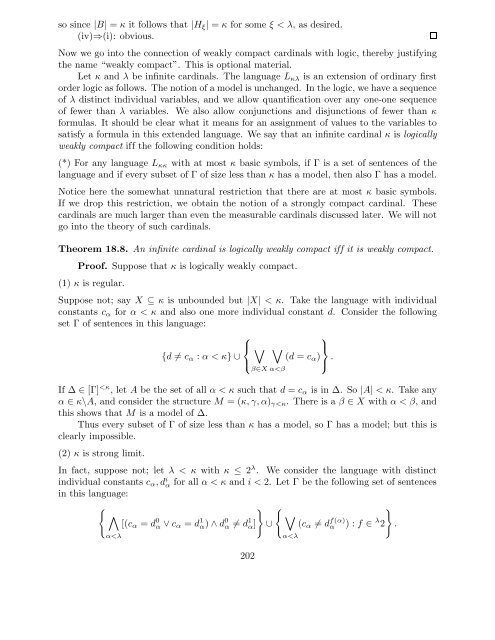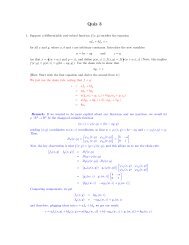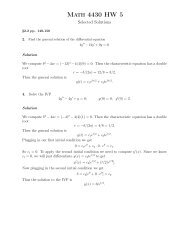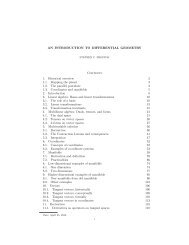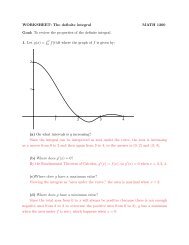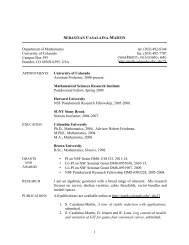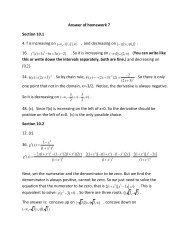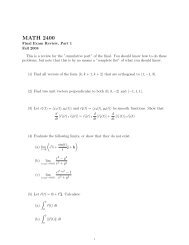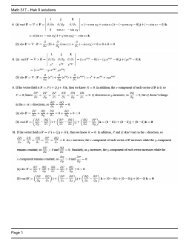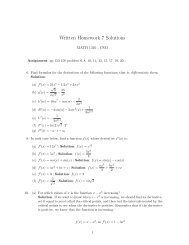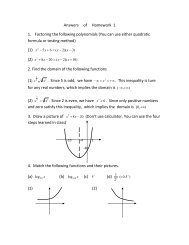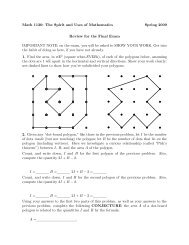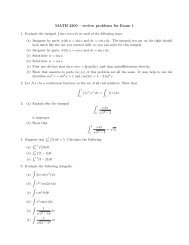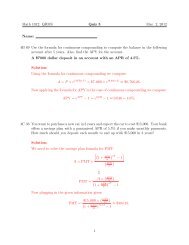18. Large cardinals
18. Large cardinals
18. Large cardinals
You also want an ePaper? Increase the reach of your titles
YUMPU automatically turns print PDFs into web optimized ePapers that Google loves.
so since |B| = κ it follows that |H ξ | = κ for some ξ < λ, as desired.<br />
(iv)⇒(i): obvious.<br />
Now we go into the connection of weakly compact <strong>cardinals</strong> with logic, thereby justifying<br />
the name “weakly compact”. This is optional material.<br />
Let κ and λ be infinite <strong>cardinals</strong>. The language L κλ is an extension of ordinary first<br />
order logic as follows. The notion of a model is unchanged. In the logic, we have a sequence<br />
of λ distinct individual variables, and we allow quantification over any one-one sequence<br />
of fewer than λ variables. We also allow conjunctions and disjunctions of fewer than κ<br />
formulas. It should be clear what it means for an assignment of values to the variables to<br />
satisfy a formula in this extended language. We say that an infinite cardinal κ is logically<br />
weakly compact iff the following condition holds:<br />
(*) For any language L κκ with at most κ basic symbols, if Γ is a set of sentences of the<br />
language and if every subset of Γ of size less than κ has a model, then also Γ has a model.<br />
Notice here the somewhat unnatural restriction that there are at most κ basic symbols.<br />
If we drop this restriction, we obtain the notion of a strongly compact cardinal. These<br />
<strong>cardinals</strong> are much larger than even the measurable <strong>cardinals</strong> discussed later. We will not<br />
go into the theory of such <strong>cardinals</strong>.<br />
Theorem <strong>18.</strong>8. An infinite cardinal is logically weakly compact iff it is weakly compact.<br />
Proof. Suppose that κ is logically weakly compact.<br />
(1) κ is regular.<br />
Suppose not; say X ⊆ κ is unbounded but |X| < κ. Take the language with individual<br />
constants c α for α < κ and also one more individual constant d. Consider the following<br />
set Γ of sentences in this language:<br />
⎧<br />
⎫<br />
⎨ ∨ ∨ ⎬<br />
{d ≠ c α : α < κ} ∪ (d = c α )<br />
⎩<br />
⎭ .<br />
β∈X α


